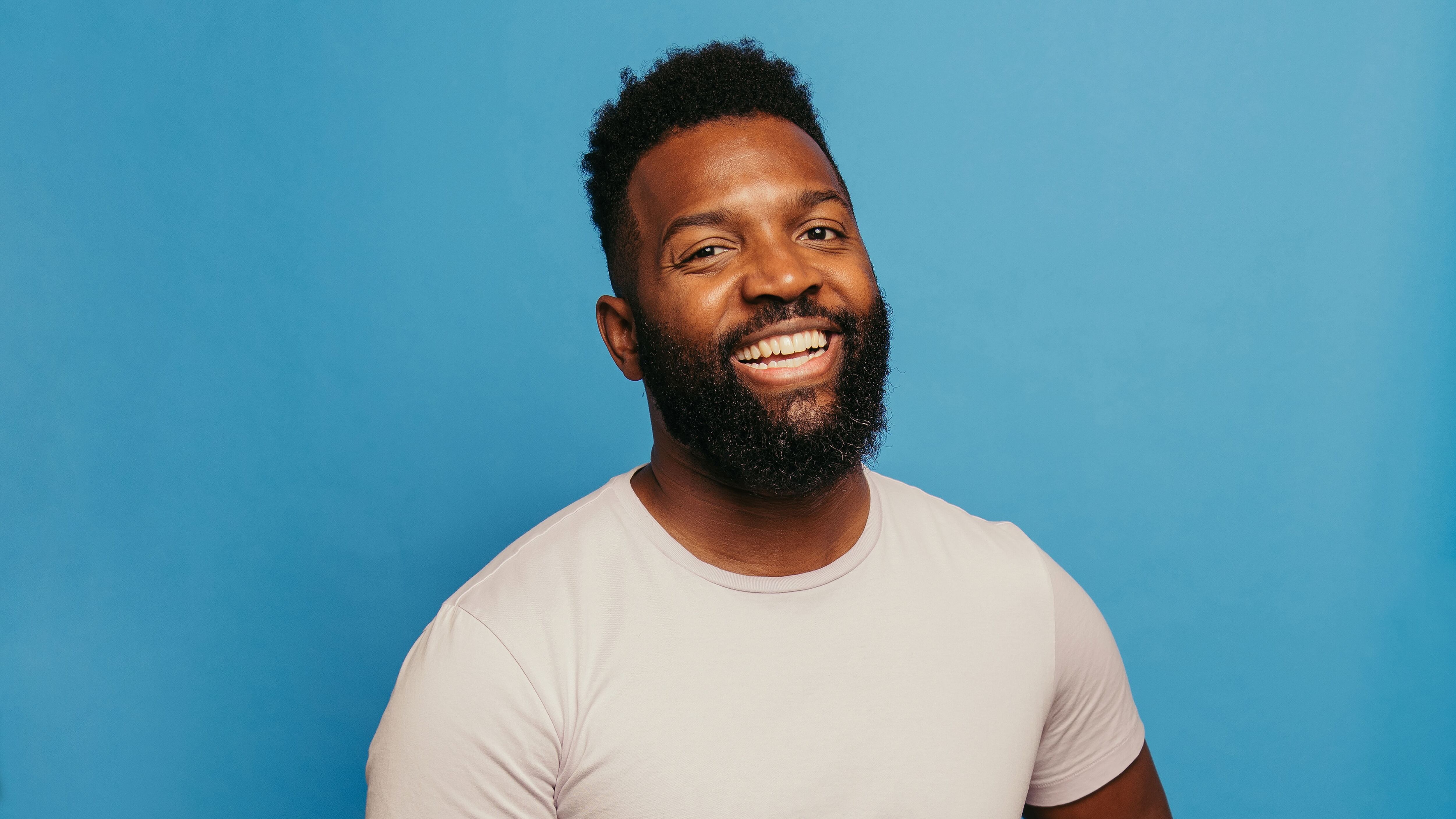From skating with Portland roller derby luminary Mick Swagger to free-diving in the murky Pacific to hunting Willamette Valley truffles, Baratunde Thurston undertook an array distinctly Oregon activities when his television series America Outdoors visited the state.
“Like a geography textbook come to life” is how Thurston, the author of How to Be Black and the host of the How to Citizen podcast, describes Oregon’s landscape after exploring the many ways to live on that land. With most episodes spotlighting a different state, America Outdoors finds its thesis in Thurston’s belief that humanity’s relationship to nature can present the keys to our unity and survival.
But perhaps the most time-honored Oregon tradition in America Outdoors Season 2, Episode 4, is a woodland epiphany—a moment that Thurston has called his “most profound” while making the show. It shouldn’t be entirely spoiled here, but it involves Thurston climbing 30 feet into a tree amid a flood of emotions.
Ahead of the episode’s premiere on Wednesday, Sept. 27, WW caught up with the PBS personality to discuss truffle hunting, ecological stewardship, and how he lets himself be a human being on camera.
WW: Your rollerblading form around Portland looked good! What’s the key?
Baratunde Thurston: Does it?! Oh, man. Putting those rollerblades on reminded me of how many decades I’ve been on this planet. I took up rollerblading 25 years ago, OK? I thought I would never go back to any other form of transportation.
It was ideal. You had the on-the-ground mobility of cycling, but with the agility of running, and you look cool. You also risk significant maiming and death. But hey, that’s a part of the charm. Rollerblading around these neighborhoods in Portland, though, I remembered why I stopped. There’s some lateral hip pressure and muscles I haven’t used in a while.
What notions did you have about Oregon going into making this episode?
My mother, it was the last place she lived. For much of her life, she wanted to live on the West Coast and lovingly would tell my sister and me, “But I didn’t because I had you.” So we were blocking our mom’s lifelong dream…interesting.
[She] ultimately settled in Portland, on Southwest Harrison Street. She loved it. I even went by and visited her old apartment building for nostalgia and honoring’s sake. So Oregon means “place my mom loved.”
Is part of your ability to be a good TV host intertwined with being a good guest?
I think about simultaneously being in someone’s home and having someone in my home. I kind of bring the interior design of my “home” with me: cameras, lights, TV production, questions, a future viewing audience.
There was a fun detail that came up in the truffle hunting, where, you know, the key to truffle hunting is some awareness of science and respect for the land. But mostly, it’s a good dog. Oregonians really love dogs. A lot of people love dogs, but different regions have different relationships.
That’s my curiosity in terms of being a guest. It’s like, so that’s how this household engages with their pets and makes them part of the family…using them to help find delicious, overpriced food.
How do the outdoors fit into your career-spanning mission of future-building and civic action?
The outdoors is a literal shared space—one of the few that remains for us to practice being together. I also think that the outdoors is a rich and literal opportunity to upgrade our collaboration skills, because it’s under threat, which means we are under threat. So it gives us a bigger group to belong to.
The aquifer? We share it. What the Agency Ranch folks are doing [in the Klamath Basin communities] to restore the water basin and the water table and send more cleaner water downstream to their neighbors…[it’s] a nice thing to do. But it’s also an economically sound thing to do. And it gives folks a reason to feel like we’re a part of the same universe.
In this episode, you’re climbing a tree, and something very unexpected happens. Did you know anything was different that day?
I was as surprised as viewers will be at my reaction. I walked into [tree-climbing] like I’ve walked into, or floated into, or driven into, or paddled into, or ridden into so many other circumstances.
You make a decision to stop climbing on camera. How did you know it would be OK productionwise?
The real truth of it is, I didn’t care. I felt like no one really knows what it is to make this show except me. Now, I don’t know what it’s like to hold that camera for hours a day, either. But in terms of carrying the weight of the conversation, the weight of the awareness of the camera, the weight of the physicality, and the weight of the emotional and psychological effort to keep all this coherent, no one else knows that. And in that moment, I took a leap.
SEE IT: The Oregon episode of American Outdoors airs at 5 pm Wednesday, Sept. 27, on KOPB-TV.

